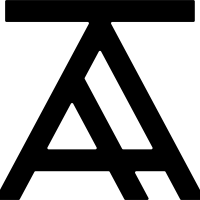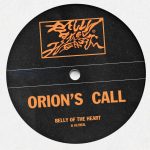Curious Advocacy
Reigniting your spark can often begin with the courage to dream big. For singer-songwriter and climate activist Vienna Teng, that’s exactly what led her to return after a decade-long break. Her latest project, We’ve Got You, is a daring two-song release presented in three distinct forms. The project features two tracks, “Spark” and “Comfort,” that each stand on their own yet come together to form a unified piece, aptly titled “Two Truths.” This innovative concept reflects the complexity of the world around us, where holding multiple truths simultaneously has become more the rule than the exception.
The idea for these interwoven songs arose from Vienna’s desire to balance ambition with intimacy. We’ve Got You is not just a musical experiment; it’s a window into her personal and professional evolution, shaped by her work in community-building, parenthood, and activism. The project’s duality mirrors how large and small actions can coexist, each acknowledging different facets of life’s struggles and joys. With this release, Vienna seamlessly blends the urgent energy of indie-pop with the tender qualities of chamber-folk, using her evolving sound to reflect her deep commitment to essential causes and her own artistic growth.
This latest project builds upon Vienna Teng’s celebrated body of work, including her 2013 galvanizing album Aims, which blended activism across pop, dance, folk, and rock songs, and The Fourth Messenger, a musical created with Tanya Shaffer that reimagined the Buddha in a modern context. In We’ve Got You, the gifted melodist combines the ambition of her own musical vision with the intricate layering of that theatrical project. The result is a stunning piece of artistry that demonstrates how great art doesn’t simply emerge from challenging times, but from the deep human desire to grow and strive for something greater–something that has always been a communal pursuit, not an individual one.
This Thursday, Vienna Teng will grace the stage at The Tin Pan in Richmond for a special performance. Ahead of the show, we were fortunate enough to catch up with the artist to learn more about her latest project and how maintaining an open mind is helping her navigate some of the challenging realities that lie ahead.
Where did the idea come from to have two separate songs that work independently, but can also come together as their own cohesive piece?
I had taken such a long break from music, and I really had this kind of nagging feeling in the back of my mind, like maybe that was what I was supposed to go back to do. And at the time, I was working on climate-related stuff and I was having a baby. I think life was trying to tell me that the thing I have to learn right now is to hold multiple things in my head at the same time. Multiple things can be true, you know? And then I just got the idea that it’d be really cool to represent that in musical form. Not that that’s 100% original, right? I know The Flaming Lips have done that, and musical theater is full of two different characters singing at the same time, but I felt like it’d be cool to do the folk-pop singer-songwriter version of that. Could I write two songs? One more in the indie pop world and the other one more in the acoustic songwriter world. Then put them together so if you look at, if you hold both these perspectives at the same time, then the whole picture actually makes more sense, even though it can be a lot to take in. But I just kind of wanted to create the musical experience of adulting, basically.
How did you approach the logistics of pulling this off?
I’ve worked on a musical with this playwright Tanya Shaffer for years. So I guess maybe subconsciously that endeavor kind of played into it, but it was honestly more like songwriting Sudoku. I knew conceptually that I wanted to have two songs that weren’t just singing on top of each other, but somehow still having a dialogue. So it was just one puzzle piece at a time. The first thing: each of them actually has to leave enough space for another song to exist within it. So more sustained vocal lines or places where it’s just pausing or empty. It was just interesting to play around with that.
And in the end, I think I basically wrote one song in its entirety, which is the “Spark” version, and then I wove the other one around it. Then kind of nudged each one. I don’t know. It was almost songwriting, but more production because studio production is like that all the time. And I feel like I just kind of pulled it into the songwriting phase more than I usually would, but it was still really hard. It took a long time to figure out.
Was it daunting to have your first official release in a decade be this ambitious project?
Totally. There were so many times where I was like, “Why am I choosing the hardest thing that I’ve ever done as a way to get back into songwriting?” This doesn’t make any sense, but it’s just sort of what I wanted, what I felt compelled to write, and to work on as the main thing to put my energy toward if I was gonna come back into writing music. There were a few other things that I wrote along the way that I haven’t figured out what to do with yet, and they’re not really ready to share. But there were some warm-up pieces along the way.
Aims itself was seen as an ambitious project by many. Did that help inform this process?
Definitely. It felt like a continuation of Aims. I am a really easily bored inner music listener, which is honestly, I think, the main thing that contributes to my writer’s block. So many things that I think are perfectly fine songs, the music fan in me is like “eh.” So if I’m trying to please that person, then I really have to do things that are a little more ambitious or complex or out of my comfort zone. That’s just the way that it seems to work for me.
What challenges has this created for live performances?
It’s mostly just a high-wire act because the way that I do it is I perform one of the songs and I record it into the looper in its entirety. So I just had to add some new wiring to my setup so that I can record all the instruments that I’m using: vocal effects, keyboard, drum pad, and that sort of stuff. It all has to go into the looper now, but then I also record the song in its entirety so that I can then go to the piano and play the other song on top of it. So if I screw up anything in the first song, then it’s just coming back when I play on top of it. So it’s been one of those challenges that is also deeply uncomfortable and scary, but it’s also been part of the thrill. Like, to figure out, “Okay, how am I gonna do something like this live?”
And interestingly, even after I got done figuring out how to perform the songs themselves, it was also interesting to figure out how to introduce these songs because I’d been playing it live before it came out on streaming platforms. So I’ve had to figure out how I tell the story of what these songs are and what even is this that I’m about to play for you.
How far back do these songs date?
I started writing them in 2020. So I actually performed them at a livestream that was 100% basically remote, and I was never in the same room as anybody during the whole performance. Then after that, I started working with Jordan Hamlin in Nashville to figure out if we were gonna do a studio version of this. How would this sound and instrumentation-wise? How would we produce it to fit the pieces together?
Has working on it been a good distraction from the direction of these last few years?
If anything, I feel like it’s been a good companion for it. I’ve actually been still pretty engaged in climate stuff, and one of the things that I started doing was just engaging music fans around climate. So I’ve been trying to be the friendly face saying, “Climate does not have to be paralyzing and terrifying–it can just be a thing that touches some part of your life, no matter what you’re interested in and what’s occupying your time, and there are things you can do about it.” So that’s the kind of workshop that I’ve been doing online with fans and also at music venues. Then this year, I was doing a bunch of “Get out the vote” stuff. So I think, in a way, I’m leaning on my own songs to say, “We can throw ourselves into this, and we can still see setbacks.” That’s still just the way that this goes. We can feel really sad and keep moving at the same time.
You posted a very poignant take on the aftermath of the recent election on social media, specifically encouraging people to be curious. Have you been able to get to that point yet, or are you still processing it all?
Being curious is my coping mechanism. That’s the immediate first place I went, actually, when the results came in and they were so definitive: all these places swung rightward. My first reaction was not to be angry or to be devastated or to just be like, “I’m done with America.” It was more, “What is going on?” I still believe in not the rationality of people, but that people are malleable and complicated and fundamentally trying to be good. I feel like those of us who write songs about what it’s like to be a person in the world–we know that it’s all kind of contradictory and full of mess. I guess my first thought was, “Okay, there are a bunch of people who did this because they felt like it was the right thing to do.” And even if I disagree with that, now the reality is that if I’m going to get anything done that I care about, I have to understand what this is.
There’s probably a way to get back on the same team with a lot of these folks. Not all of them, but enough of them. So what does that look like? And so that’s where my head immediately went, actually. It was only about four days later that I woke up feeling really sad. So I tend to be more in that space first. I guess that’s what working in climate and clean energy stuff the past decade or so has taught me: no matter what is unfolding in the world, it can look really bad and it often does, but I guess I’ve spent enough time with people where their first instinct was, “Okay, so now what do we do? What does this mean?” Because we’re all actually here to solve a problem or to make things better. So if we’re serious about making things better, what do we do with this information? I guess hanging out with those folks is training my head and my heart to go first.
AOC had an interesting approach where she chose to engage people who voted for herself but also for the opposition on their ballot. Is it hard for you to see people who may champion these progressive causes still end up voting for the side preventing them?
Yes, sure, but also… Our youngest is now four, and I feel like that has been the best lesson in whatever I was trying to communicate or what I think is the right course of action here. Like, this is irrelevant. What I have to do is figure out what is gonna resonate with this person that I need to get on the same team with. That’s also been really useful for me. I know the more I look at the facts, I think, and make the more reasonable judgment here, but that doesn’t change the opinion, the feelings, and the perspective of this other person. There is actually something true about where they’re coming from too. And I just have to figure out what it is and how we put those together so that now both the thing that I know is true and the thing you know is true, therefore, actually do a thing together rather than going in opposite directions.
Obviously, on any given day, I try that and it doesn’t work with a four-year-old, but we keep trying. I’ve definitely become that annoying person for whom the entire human experience can be boiled down to parenting analogies right now. But that’s kind of where I’m at. Anytime I see something that looks irrational or infuriatingly in the wrong direction to me, I guess my first thought is, “Okay, how are they experiencing it because I’m clearly missing something or I’m not seeing it.” I’m not standing in their shoes enough to understand what’s going on here. Sometimes they might actually be right, and I totally missed something, and I need to be open to that.
I feel like it’s important, but a lot of the time, it’s like, “Oh, we actually agree, but we have reacted to it in different ways.” And so now what do we do? I know a bunch of people who are really concerned about what has unfolded in Gaza and now what’s happening in the Middle East more broadly, and that has led some people to sit out the election or to vote for Trump. People could hammer on all day about how that is a totally wrong-headed decision, but it’s like… it made sense to them. I need to understand where they’re coming from with that in order for us to move forward together somehow. Because we are actually stuck with each other. So, what are we gonna do?
You run climate workshops at a lot of your concerts. Do you see those taking on a new life come January when policy changes start to occur?
Well, I think I might tailor it a lot to where people are at. I think, on the one hand, mine has always focused on “What do you want to do that makes sense for you?” What you’re good at, what you’re enthused about, how it might fit into your life and the other things that keep you busy. So, in a way, that might not change, but it might involve more people wanting to be political in their climate work or it may go totally the other direction where that’s a wash. So I’m gonna try to get solar panels on my house or whatever it might be. The whole point of my workshops is just to try to listen a lot first and see what people are interested in because, ultimately, I want them to not just take one of my workshops and then nod and walk away, but I would love for them to do things and to actually find that that’s something that they find energizing.
It has been cool that for certain people, it has been really a catalyst, kind of the nudge they needed to go do something that they were gonna be awesome at anyway. I’ve had some fans who have started entire solar development projects in their community or have made an intergenerational group of people to think about a climate project they want to do together. That’s cool stuff. I’ll just see what people are up for and how I can be helpful.
The concept of meeting people where they’re at is a subtle triumph of Aims with its multifaceted sound carrying your own message across different styles. Was that an intentional approach?
I think it was more a reflection of just me sort of selfishly making the record I wanted to make. I stay more motivated longer when I’m having a good time. And so a lot of Aims was me writing the “feel good” music that I wanted–not “feel good” in the way that sounds escapist or vapid or shallow, but “feel good” music that was sort of a pep talk. A friend who was like, “Let’s just do it together.” It was looking at the world in a way that felt like you’re not just trying to wave it away and say nice things that aren’t true. In a way that you get it and you’re also still in it. That’s the kind of record I wanted to make and I was hoping that people would enjoy it as much as I did.
You’ve talked about writer’s block in relation to writing music. After this recent release, have you started to think about what comes next or is that a paralyzing thought right now?
Well, thanks for asking. I actually am really excited about more projects that I have in the pipeline. The main thing is just cracking the code of my writer’s block because right now, all my ideas that I get excited about come in ambitious concepts. For We’ve Got You, it’s like, “Oh, I should write two songs that actually can be interwoven together and form a third complete song.” That is just one of the hardest starting places, creativity-wise. And so the next thing that I would love to work on is actually more of a solo stage show. Part monologues, part visuals, part songs. Exploring me and my relationship to my dad and how that informs a bunch of other things. That’s been really fun to sink my teeth into. But it’s also a lot of working for long periods, producing a lot of stuff, and then deciding that it doesn’t work. Working a lot without having a lot to show for it.
I have also thought it’d be really fun to actually re-record some of my older songs. Not in the Taylor Swift carbon-copy way where you can’t even tell which one is the original, but more reimagining it. There have been a number of drum corps, for example, that have performed my songs in their shows. What would be a really cool thing is to collaborate with a drum corps ensemble or with a youth orchestra or with some other artists that I really think are incredible. So that’s been another thing that’s been sort of rattling around as a project. On top of that, it’s just the other stuff where I’m not consciously planning anything and just trying to sit down at a piano or with a guitar or with a weird electronic instrument. Just seeing what comes up. I am actually excited about a bunch of it. Fortunately, I think people who like me have learned to be very, very, very patient with how long it takes me to put stuff out.
Vienna Teng plays The Tin Pan in Richmond on Thursday, November 14th. For ticket information, please click here. To stay up-to-date on future announcements and releases from Vienna Teng, make sure to bookmark her website and follow her on social media.




